ADHD Treatment In Albuquerque, NM


Bipolar Disorder
If you or someone you love is struggling with attention-deficit/hyperactivity disorder (ADHD), the effects can impact almost every aspect of your life. You may have trouble focusing on your work or household tasks. It may be difficult to maintain relationships with others. Students may have problems at school where they are being disruptive in class or neglecting their studies.
Whatever the situation may be, finding compassionate, professional ADHD treatment can go a long way to helping you or your loved one find peace and keep the symptoms of this disorder from interfering with daily life. Fortunately, Vanguard Behavioral Health is here to provide ADHD treatment in Albuquerque, NM.
The Need for Professional ADHD Treatment
According to the Centers for Disease Control and Prevention, roughly 6 million children suffer from ADHD. Recent studies have found that more than 4% of American adults have been diagnosed with ADHD, as well. Although most children with an ADHD diagnosis receive some form of intervention in the form of medication or behavioral therapy, many adults who suffer from it receive no help at all.
The symptoms of ADHD typically include an inability to focus and impulsive behavior. These can have several effects on an individual’s day-to-day activities. For example, he or she may have a hard time remembering details such as appointment times or grocery lists. Those suffering from ADHD may appear to be disorganized, frequently misplacing items or making careless mistakes. They might talk incessantly to the point of constantly interrupting others. They may have a difficult time sitting still for very long and show other signs of restlessness.
ADHD and Addiction: The Connection
The symptoms of ADHD can manifest in various ways and often continue from childhood into adulthood. According to numerous studies, individuals with ADHD are significantly more likely to develop substance use disorder compared to the general population.
Often, those suffering from ADHD may turn to alcohol or drugs to self-medicate, which can lead to additional problems. For example, alcohol or marijuana might temporarily reduce anxiety and hyperactivity, but with continued use, these substances can worsen attention and impulsivity issues, disrupt sleep patterns, and lead to additional mental health problems such as depression and anxiety disorders.
Addiction can also often mask the underlying ADHD, leading to a misdiagnosis. This emphasizes the importance of a comprehensive assessment and evaluation when working with individuals with addiction.
This is why our ADHD treatment for adults includes dual diagnosis treatments that address these concerns at the same time.
Strategies for Successful Recovery in Dual Diagnosis Patients with ADHD

Achieving successful recovery for individuals with addiction and ADHD is challenging but entirely possible. Here are several strategies that we have found beneficial for individuals we work with:
- Integrated Treatment
Dual diagnosis treatment which addresses both ADHD and addiction at the same time is critical. Treating only one condition can exacerbate the other, making recovery from addiction or ADHD more difficult. Coordinated, multidisciplinary care can lead to better overall outcomes.
- Medication Management
Medication for ADHD, both stimulant or non-stimulant, can be instrumental in managing ADHD symptoms. These treatments can potentially improve attention, reduce impulsivity, and decrease the likelihood of substance use in some patients. However, the potential for misuse of stimulant medication must be considered and monitored closely by healthcare providers.
For the addiction aspect, certain medications may be beneficial depending on the specific substance involved. For instance, medications such as buprenorphine and naltrexone are often used in opioid addiction treatment.
- Psychotherapy
Cognitive-behavioral therapy (CBT) can be highly beneficial for individuals struggling with ADHD and addiction. CBT helps individuals identify and change harmful thought patterns and behaviors. Skills training, like teaching coping skills, time management, and organizational skills, can also be beneficial.
- Substance Use Education
Education about substance use and its risks and impacts on ADHD symptoms and overall health is vital. Helping people understand more about addiction and ADHD can empower individuals to make more informed decisions about their health and behavior.
- Lifestyle Changes
Healthy lifestyle changes can play a supportive role in recovery. Regular exercise, a balanced diet, and adequate sleep can significantly improve both ADHD symptoms and overall well-being. Mindfulness and relaxation techniques, like meditation and yoga, which are also both offered at Vanguard, can help manage stress and improve focus.
- Social and Family Support
Support from family, friends, and support groups can provide support and accountability in recovery. Our clinical staff offers family therapy which can help educate family members about both conditions and improve family dynamics.
- Continuous Monitoring and Long-term Follow-up
Recovery is a long-term process that requires ongoing care. Regular check-ins with healthcare providers, continuing therapy sessions, and attending support group meetings can provide sustained support and reduce the risk of relapse. Vanguard employs a number of peer support specialists who have been through addiction and other co-occurring disorders who are available to individuals past successful completion of the program.
- Individualized Approach
Each person’s journey with ADHD and addiction is unique, so our multidisciplinary staff works to ensure that their treatment plan is individualized and comprehensive. What works for one person may not work for another, so it’s crucial to develop a collaborative plan . Our team of psychiatrists, social workers, and licensed professional counselors work together with the individual to develop a plan that works.
Why Choose Vanguard Behavioral Health?
If ADHD has negatively impacted your life to the point where you need outpatient or inpatient therapy that can provide relief, look no further than Vanguard Behavioral Health. We have a team of fully qualified and experienced professionals including therapists who work together to develop a personalized care plan to effectively target each client’s needs. We stand apart from other ADHD treatment centers in the area because we understand the value of treating substance use disorder and ADHD concurrently. Whether the solution is medication or behavioral therapy such as Cognitive-Behavioral Therapy, we can assist you in developing healthy coping skills to manage ADHD.
ADHD affects millions of people from all walks of life, but it doesn’t have to prevent you from living a full life and enjoying success. With comprehensive, compassionate care from our professionals, you or someone you love can find relief from these symptoms and live an overall healthier lifestyle. Our clinic is in Albuquerque, NM, to serve you. Get in touch with us today to find out how we can help.
Begin Your Journey
Pages
Our Services
Pages
Our Services
Copyright © 2024 Vanguard Behavioral Health. All Rights Reserved.


